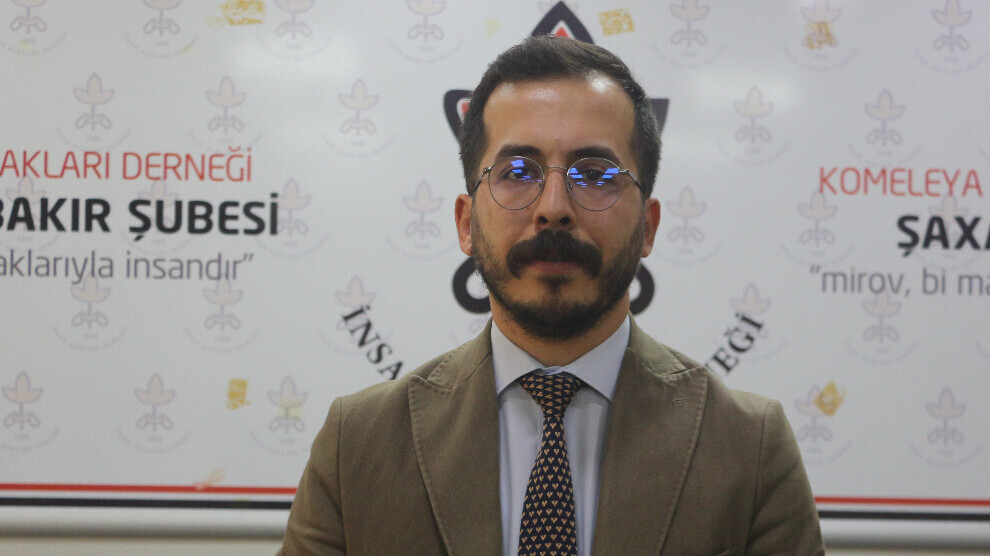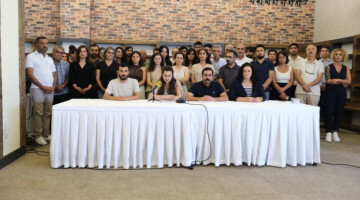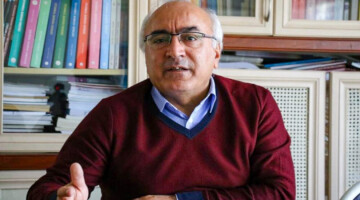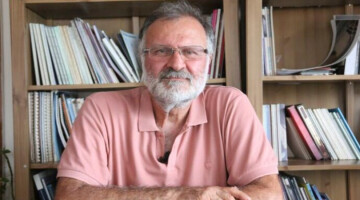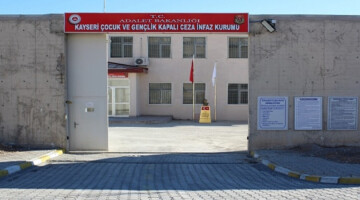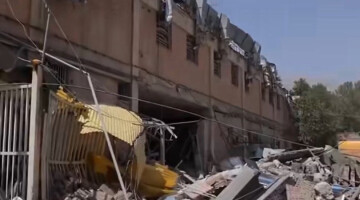Despite the fact that the Kurdish language and culture have a rich and deep-rooted heritage with thousands of years of history, the oppression and assimilation policies against the Kurdish language and Kurdish identity unfortunately continue in a hostile manner. Especially recently, young people singing in Kurdish in Turkey have been subjected to racist attacks and imprisoned, while Kurdish language institutions have been raided and their administrators detained. Behind these attacks on the Kurdish language and culture lie the racist and assimilationist policies of the AKP-MHP government, while the ‘special war’ policies against the Kurds form the basis of these attacks.
Speaking to ANF about the attacks on Kurdish language and culture, Human Rights Association (IHD) Amed (Diyarbakır) Branch President Ercan Yılmaz said: “The attack on the Kurdish language is not independent of the Kurdish question. There has been a monist understanding since the foundation of the Republic. With the amendments made after the 1921 Constitution, efforts were made to make the whole society monotypic. We are still discussing some of the laws that were passed; there were tragicomic rules against the use of the Kurdish language on the street and in life, up to fines. In the 90s, when it was no longer possible to deny that the Kurdish language and Kurds existed, there were some steps taken by the state to criminalise the Kurdish language and Kurds. This process continued in this way until 2011-2012.
‘Racist attacks and discriminatory attitudes also directed against the Kurdish language’
Afterwards, with the start of negotiations on the resolution of the Kurdish question, a little bit of discussions on the Kurdish language and the existence of Kurds began in Turkey’s society as a whole. However, with the resumption of the conflict process after 2015, many of the racist attacks and discriminatory attitudes against Kurds were also directed against the Kurdish language. Dozens of Kurdish concerts and theatre performances were banned. With the beginning of the trustee appointments in the (Kurdish) region, systematic attacks were carried out against the multilingual municipality understanding that had been operating before the trustees, and this situation has continued until today.”
Pointing to the resumption of multilingual municipalism with the re-winning of the municipalities, Yılmaz continued: “Kurdish-language kindergartens, conservatories and courses started to operate again. Multilingual signboards started to be hung again. Here, too, we saw the government's attack; bilingual signs on the roads were erased by law enforcement officers upon the request of governorships and district governorships. This is actually the final stage of the attack on the Kurdish language and culture. Not long ago, the Minister of Interior visited Diyarbakır. When he came to Diyarbakır, he referred to Feqiyê Teyran, as he knew that Diyarbakır was a Kurdish city and had been acquainted with this fact for years.
‘Kurds demand the removal of obstacles to the use of Kurdish in social life’
However, shortly after he left the city, he organised attacks against the Kurdish language in many cities in the region and implemented many measures to prevent the use of the Kurdish language in social life. The issue of the mother tongue is a matter on which all Kurds in Turkey agree. Kurds demand education in their mother tongue and the removal of obstacles to the use of Kurdish in social life. The government needs to listen to these demands.”
‘Pragmatist daily politics come into play’
“There is nothing acceptable about approaching the issue of keeping Kurdish culture and language alive with nationalist and racist understandings,” Yılmaz said: “There has been such an approach for a century. Kurds still insist on using their mother tongue. This insistence appears as the most natural human right. When ministers come to the region and commemorate Kurdish thinkers, writers and scientists, immediately afterwards, the law enforcement forces under his command carry out an attack against the Kurdish language.
Here, pragmatist daily politics, incompatible with universal human rights law and far from the solution of the issue, come into play. We have experienced for many years that this does not contribute to the solution to the issues. What needs to be done is to bring the language issue to a universal standard.”

